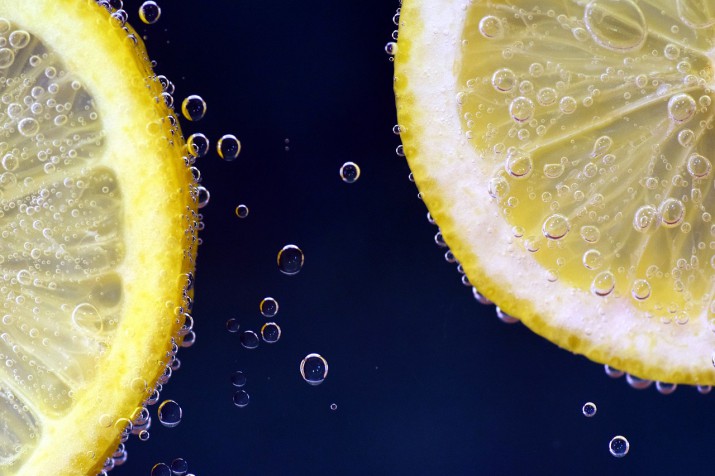Fat loss is an inside job and if you don’t have a healthy liver, then you are going to struggle to lose the extra weight.

When looking to lose body fat, we tend to look at the usual suspects like activity levels and calories in versus calories out. The logic – excess calories—whether from protein, carbohydrate or fat (the three main “macronutrients,” in food)—will inevitably make us pile on the pounds. So the obvious solution is to eat less and exercise more. However, if your liver isn’t functioning optimally, you are going to struggle to lose fat.
“The second brain”
Your liver is often referred to as the “second brain” of your body and for good reason. It regulates hormone function, assimilates nutrients, filters your blood, metabolizing medication and handles insulin to name a few. All of these functions are critical to your health and critical to your metabolism. A healthy liver is the only visceral organ that possesses the remarkable capacity to regenerate. It can regenerate damaged tissue rapidly thereby preventing its own failure and can even regenerate after surgical removal where the partial removal of the liver is necessary due to fibrosis or a tumor.
Five common culprits that can cause liver damage:
Rancid/oxidized oil – Your liver has a difficult time processing rancid oils. Oils like corn, sunflower oil and even healthy oils like extra virgin oil are unstable. Exposure to light and heat makes them highly prone to oxidation. Consuming oxidized oil had a negative effect on cholesterol levels. It’s best to use olive oil for a finishing, you want to avoid cooking with it. Use something that is more saturated like coconut oil or butter.
Carbohydrate Overload – Eating excessive carbs continually creates a cluster of symptoms now best known as metabolic syndrome or insulin-resistance syndrome. This can lead to high cholesterol levels, high blood pressure, high uric acid levels and blood-clotting problems. A study in the Hepatobiliary Surgery and Nutrition found that high fructose corn syrup and hydrogenated oils leads to obesity and the development of non alcoholic fatty liver disease.
Alcohol overload – Many of us enjoy an occasional alcoholic drink and that’s perfectly fine, our body can usually cope with drinking a small amount of alcohol. However, if you drink more than the liver can deal with by drinking too quickly, or drinking too much, your liver cells struggle to process it. Too much fat can build up in your liver if you drink more than the it can handle. This can lead to three main types of liver conditions: fatty liver, hepatitis and ‘scarring’ of the liver (cirrhosis).
Drugs and medications – One of the main functions of the liver is to break down substances that we take by mouth, including medications, herbs and supplements. These drugs and dietary supplements can sometimes wreak havoc with that system leading to dangerous liver problems. Doctors use the term drug-induced liver injury (DILI) to refer to any liver damage caused by drugs.
Pesticides and heavy metals: Exposure to chemicals in pesticides and heavy metals through vegetables, fruits and adulterated foods and can also damage the liver. These toxins get stored in liver over a lifetime to cause liver damage.
Five tips to a healthy liver:
Eat organic food whenever possible – If you can’t afford organic, at least spend the extra money on the more fragile of the fruit and vegetables. Peaches, strawberries, nectarines, apples, spinach, celery, pears, sweet bell peppers, cherries, potatoes, lettuce, and imported grapes often require more pesticides to fight off bugs. When buying meat or produce that is or isn’t packaged, look for a sign stating that it’s organic to ensures you’re getting antibiotic- and hormone-free products.
Avoid high glycemic and highly processed foods – Avoiding liver damaging foods that contain sodium, refined carbs and too much sugar can help you have a functional & healthy liver.
Exercise – Regular exercise can have a positive effect on your liver. Moving the body helps to circulate blood. The more the blood circulates, the more the liver can do the job of cleansing and purifying the blood. Aim to stay active for at least 150 minutes a week to improve liver function.
Consider using liver supportive supplements and herbs – Milk thistle extract is used to maintain liver health and to protect the it from the effects of toxins such as alcohol, a polluted environment or workplace, and a host of liver related diseases. A good practice would be to cycle for a month or two within a year. Drink Chanca Piedra Herbal tea for a healthy liver.
Eat liver healthy foods – Foods like garlic, beets and carrots, avocado, apples, walnuts and leafy greens help your body to cleanse the liver. Also drinking lemons infused water can help your body neutralize toxins and has alkalising’ effects on the body.



